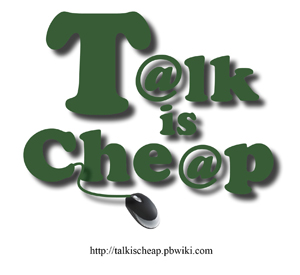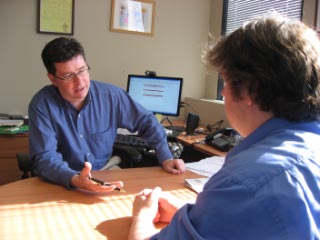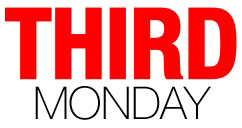 At lunch today, I participated in a panel discussion sponsored by CPRS Ottawa-Gatineau on the theme: Knowing What You Don’t Know: Are Blogs and Social Media Changing the Communications Landscape? My fellow panelists were blogger Ian Ketcheson and Rob Henderson from CNW Group.
At lunch today, I participated in a panel discussion sponsored by CPRS Ottawa-Gatineau on the theme: Knowing What You Don’t Know: Are Blogs and Social Media Changing the Communications Landscape? My fellow panelists were blogger Ian Ketcheson and Rob Henderson from CNW Group.
Rob Henderson said that while many of CNW’s clients have been slow to embrace social media, they now are are expressing increasing interest in it. They know something is coming. And they want to be ready for it when it breaks into the mainstream.
Publicly traded companies are concerned about what they don’t know. The unknown lends a random, unpredictable element to the management of their corporate reputation.
Rob suggested that a number of the larger companies are holding back on social media because they want to see some of the early adaopters make the mistakes. Then they will have the “before” picture and be able to engage in social media with a set of established best practices and known conventions.
 CNW has been introducing multiple streams of multimedia to match their clients’ appetite as it develops.
CNW has been introducing multiple streams of multimedia to match their clients’ appetite as it develops.
Ian Ketcheson talked about the environment for social media in government. He believes that senior executives in government get the significance of social media. It’s seen as one of the most pressing issues that they must deal with. And they are struck by the speed with which the changes driven by social media are occurring.
The breaking of news about the Gomery Committe on the Captains Quarters blog brought home to government communicators that traditional means of controlling news and information have broken down. Garth Turner’s expulsion from the Conservative caucus demonstrated that a public figure can harness the blogosphere to match large organizations in advancing his or her position.
There is much experimentation with social media in various parts of the government. Like social media itself, it reflects the initiative of individuals operating beyond a centrally planned and controlled strategy.
 The discussion with the audience touched on a broad range of issues, including the power of social media to conduct consultations with people regardless of their geographic location; the power of blogs behind the firewall to bring organizations together and to provide a channel for genuine and spontaneous feedback; and social media as a tool to enhance collaboration.
The discussion with the audience touched on a broad range of issues, including the power of social media to conduct consultations with people regardless of their geographic location; the power of blogs behind the firewall to bring organizations together and to provide a channel for genuine and spontaneous feedback; and social media as a tool to enhance collaboration.
The point was also made that many blogging reporters are exploring potential stories first on their blogs. They may then assemble a perspective and body of facts necessary to compete for the limited space in the mainstream media outlet. Finally, communicators must prepare their organizations to surrender the fiction that they control the message and instead understand that the era of social media requires that communicators engage in persuasion, not control.
I ended the session with an invitation to the participants to visit this blog post and get engaged in social media by leaving a comment. So, the success of my contribution will be judged by whether there are any comments here.



 From the first word I read, I am assessing the writer as a potential employee. And I am amazed at how poorly most people present themselves in these requests.
From the first word I read, I am assessing the writer as a potential employee. And I am amazed at how poorly most people present themselves in these requests.
 We have a great speaker – Mark Evans – to kick off Third Tuesday’s 2007 spring season.
We have a great speaker – Mark Evans – to kick off Third Tuesday’s 2007 spring season.


 Dana Morningstar has
Dana Morningstar has 


 On October 16, at Third Monday in Ottawa,
On October 16, at Third Monday in Ottawa,  The next night, October 17, Third Tuesday Toronto attendees will spend the evening in discussion with Globe and Mail technology writer Mathew Ingram. “A typical day for Mathew still includes researching and writing copy for tomorrow’s paper, but also populating the Globe’s “
The next night, October 17, Third Tuesday Toronto attendees will spend the evening in discussion with Globe and Mail technology writer Mathew Ingram. “A typical day for Mathew still includes researching and writing copy for tomorrow’s paper, but also populating the Globe’s “ And why should you care where it goes? Mathew will also share his thoughts on why he started blogging, the difference between his personal blog and Geekwatch, the current crop of Web 2.0 technologies and his predictions on the evolution of social media.”
And why should you care where it goes? Mathew will also share his thoughts on why he started blogging, the difference between his personal blog and Geekwatch, the current crop of Web 2.0 technologies and his predictions on the evolution of social media.”